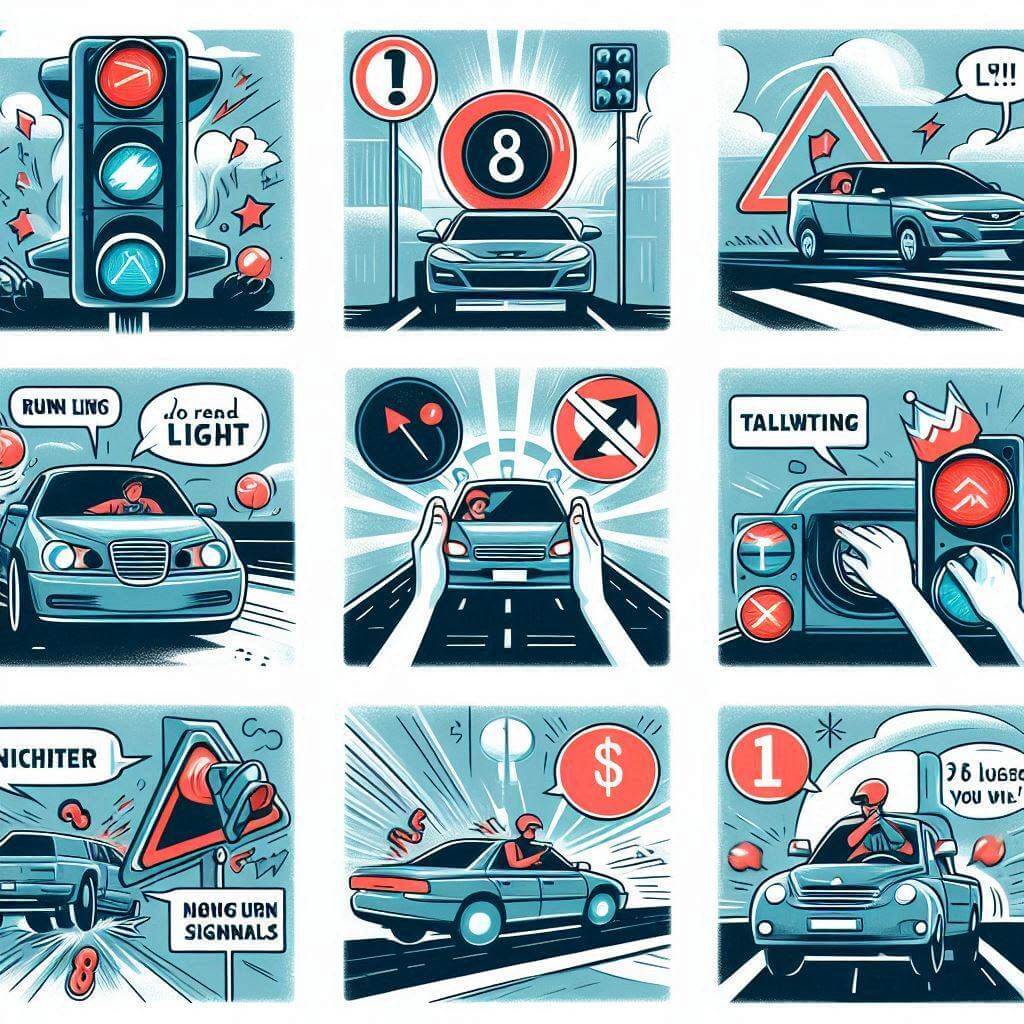10 Most Common Driving Mistakes That Can Lead to Accidents

As we hit the roads, we’re not just driving our vehicles, we’re also sharing the road with hundreds of other drivers, cyclists, and pedestrians. With so many variables at play, it’s easy to make mistakes that can have devastating consequences. In this article, we’ll explore the 10 most common driving mistakes that can lead to accidents and provide tips on how to avoid them.
Contents
- Mistake #1: Speeding
- Mistake #2: Distracted Driving
- Mistake #3: Following Too Closely
- Mistake #4: Failing to Yield
- Mistake #5: Not Checking Blind Spots
- Mistake #6: Impaired Driving
- Mistake #7: Poor Night Driving
- Mistake #8: Inadequate Vehicle Maintenance
- Mistake #9: Aggressive Driving
- Mistake #10: Fatigue Driving
Mistake #1: Speeding
- Definition: Driving faster than the speed limit or in excess of what is safe for the conditions.
- Consequences: Increased stopping distance, reduced reaction time, and higher risk of losing control.
- Prevention: Check speed limits, adjust speed according to road conditions, and avoid sudden acceleration or braking.
Mistake #2: Distracted Driving
- Definition: Engaging in activities that take your attention away from the road, such as texting, eating, or chatting with passengers.
- Consequences: Failure to respond to hazards, reduced reaction time, and increased risk of accidents.
- Prevention: Put away your phone, avoid eating while driving, and minimize conversations while driving.
Mistake #3: Following Too Closely
- Definition: Maintaining a following distance that is too close to the vehicle in front of you.
- Consequences: Increased risk of rear-end collisions and loss of control.
- Prevention: Maintain a safe following distance (at least 2-3 seconds), use your mirrors and check blind spots regularly.
Mistake #4: Failing to Yield
- Definition: Failing to yield right-of-way to other drivers, pedestrians, or cyclists.
- Consequences: Accidents caused by neglecting traffic laws and common courtesy.
- Prevention: Anticipate traffic situations, respect pedestrians and cyclists’ right-of-way, and come to a complete stop at stop signs and red lights.
Mistake #5: Not Checking Blind Spots
- Definition: Failing to check mirrors and blind spots before changing lanes or merging.
- Consequences: Accidents caused by not seeing other vehicles or pedestrians in your blind spot.
- Prevention: Check mirrors regularly, check blind spots before changing lanes or merging, and use your turn signals.
Mistake #6: Impaired Driving
- Definition: Driving under the influence of drugs or alcohol.
- Consequences: Reduced reaction time, impaired judgment, and increased risk of accidents.
- Prevention: Never drive under the influence of drugs or alcohol.
Mistake #7: Poor Night Driving
- Definition: Not adjusting driving habits for nighttime conditions.
- Consequences: Reduced visibility, decreased reaction time, and increased risk of accidents.
- Prevention: Adjust your speed according to visibility conditions, use high beams when necessary, and avoid sudden movements.
Mistake #8: Inadequate Vehicle Maintenance
- Definition: Neglecting regular vehicle maintenance checks and repairs.
- Consequences: Malfunctioning brakes, tires, or suspension can lead to accidents.
- Prevention: Regularly check your vehicle’s condition, maintain proper tire pressure and tread depth, and address any issues promptly.
Mistake #9: Aggressive Driving
- Definition: Driving aggressively or recklessly in an attempt to save time or assert dominance.
- Consequences: Increased risk of accidents, road rage incidents, and damage to your vehicle.
- Prevention: Drive calmly and patiently, avoid tailgating, and don’t engage in aggressive behavior.
Mistake #10: Fatigue Driving
- Definition: Driving while tired or fatigued.
- Consequences: Reduced reaction time, impaired judgment, and increased risk of accidents.
- Prevention: Get enough sleep before driving, take regular breaks during long trips, and avoid driving when tired.
Driving is a serious responsibility that requires attention to detail and awareness of potential hazards. By avoiding these common mistakes and taking steps to prevent them, you can reduce your risk of being involved in an accident. Remember to always prioritize road safety and stay alert behind the wheel.


